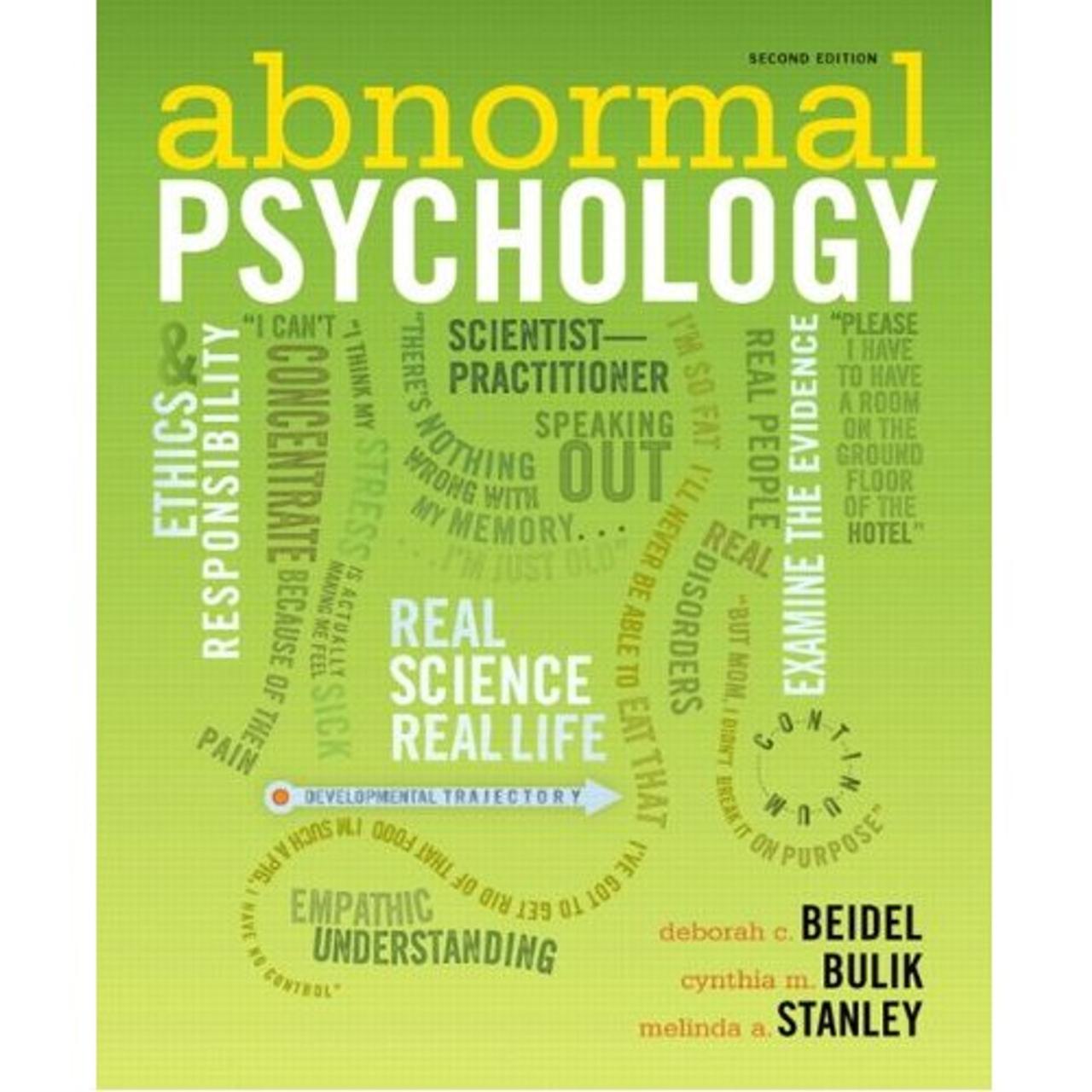Abnormal psychology a modern approach 3rd edition – Abnormal Psychology: A Modern Approach, 3rd Edition, emerges as a beacon of knowledge, inviting readers to embark on an enthralling journey into the realm of mental health. With meticulous precision and authoritative insights, this seminal work unveils the complexities of abnormal behavior, providing a comprehensive understanding of its manifestations, causes, and treatments.
This comprehensive guide delves into the historical underpinnings of abnormal psychology, tracing its evolution from ancient beliefs to contemporary scientific perspectives. It explores diverse models of abnormality, empowering readers with a nuanced understanding of the multifaceted nature of mental health conditions.
Introduction: Abnormal Psychology A Modern Approach 3rd Edition
Abnormal Psychology: A Modern Approach, 3rd Edition, provides a comprehensive overview of the field of abnormal psychology. The text covers the historical context and evolution of the field, as well as different models of abnormality, including the medical model, the behavioral model, and the biopsychosocial model.
The text also discusses the different types of abnormal behavior, including anxiety disorders, mood disorders, schizophrenia and other psychotic disorders, personality disorders, eating disorders, and substance use disorders. Each chapter provides a detailed overview of the disorder, including its symptoms, etiology, and treatment.
Models of Abnormality

There are several different models of abnormality, each with its own strengths and limitations. The medical model views abnormal behavior as a disease that can be diagnosed and treated. The behavioral model views abnormal behavior as learned behavior that can be changed through conditioning.
The biopsychosocial model views abnormal behavior as the result of a combination of biological, psychological, and social factors.
- Medical model:Views abnormal behavior as a disease that can be diagnosed and treated. Strengths: Provides a clear and objective way to define and classify abnormal behavior. Limitations: May overlook the role of psychological and social factors in the development of abnormal behavior.
- Behavioral model:Views abnormal behavior as learned behavior that can be changed through conditioning. Strengths: Emphasizes the role of learning in the development and maintenance of abnormal behavior. Limitations: May overlook the role of biological and social factors in the development of abnormal behavior.
- Biopsychosocial model:Views abnormal behavior as the result of a combination of biological, psychological, and social factors. Strengths: Provides a more comprehensive view of the development of abnormal behavior. Limitations: Can be difficult to apply in practice.
Anxiety Disorders
Anxiety disorders are the most common type of mental disorder, affecting approximately 18% of the population. Anxiety disorders are characterized by excessive fear and anxiety that can interfere with daily life.
There are several different types of anxiety disorders, including generalized anxiety disorder, panic disorder, and social anxiety disorder. Generalized anxiety disorder is characterized by chronic, excessive worry about a variety of topics. Panic disorder is characterized by sudden, unexpected panic attacks.
Social anxiety disorder is characterized by intense fear and anxiety in social situations.
The etiology of anxiety disorders is complex and likely involves a combination of biological, psychological, and social factors. Treatment for anxiety disorders typically involves psychotherapy, medication, or a combination of both.
Mood Disorders
Mood disorders are characterized by disturbances in mood that can range from mild to severe. Mood disorders can be either unipolar or bipolar. Unipolar mood disorders are characterized by episodes of depression only. Bipolar mood disorders are characterized by episodes of both depression and mania or hypomania.
Depression is the most common type of mood disorder, affecting approximately 16% of the population. Depression is characterized by a persistent feeling of sadness, loss of interest in activities, and fatigue. Mania is characterized by a period of abnormally elevated mood, increased energy, and decreased need for sleep.
Hypomania is a less severe form of mania.
The etiology of mood disorders is complex and likely involves a combination of biological, psychological, and social factors. Treatment for mood disorders typically involves psychotherapy, medication, or a combination of both.
Essential Questionnaire
What is the scope of Abnormal Psychology: A Modern Approach, 3rd Edition?
This book provides a comprehensive overview of the field of abnormal psychology, covering historical perspectives, models of abnormality, specific mental health conditions, and treatment approaches.
What are the key features of this book?
This book is known for its clear and engaging writing style, up-to-date research, and inclusion of real-world case studies.
Who is the intended audience for this book?
This book is suitable for students, practitioners, and anyone interested in gaining a deeper understanding of abnormal psychology.